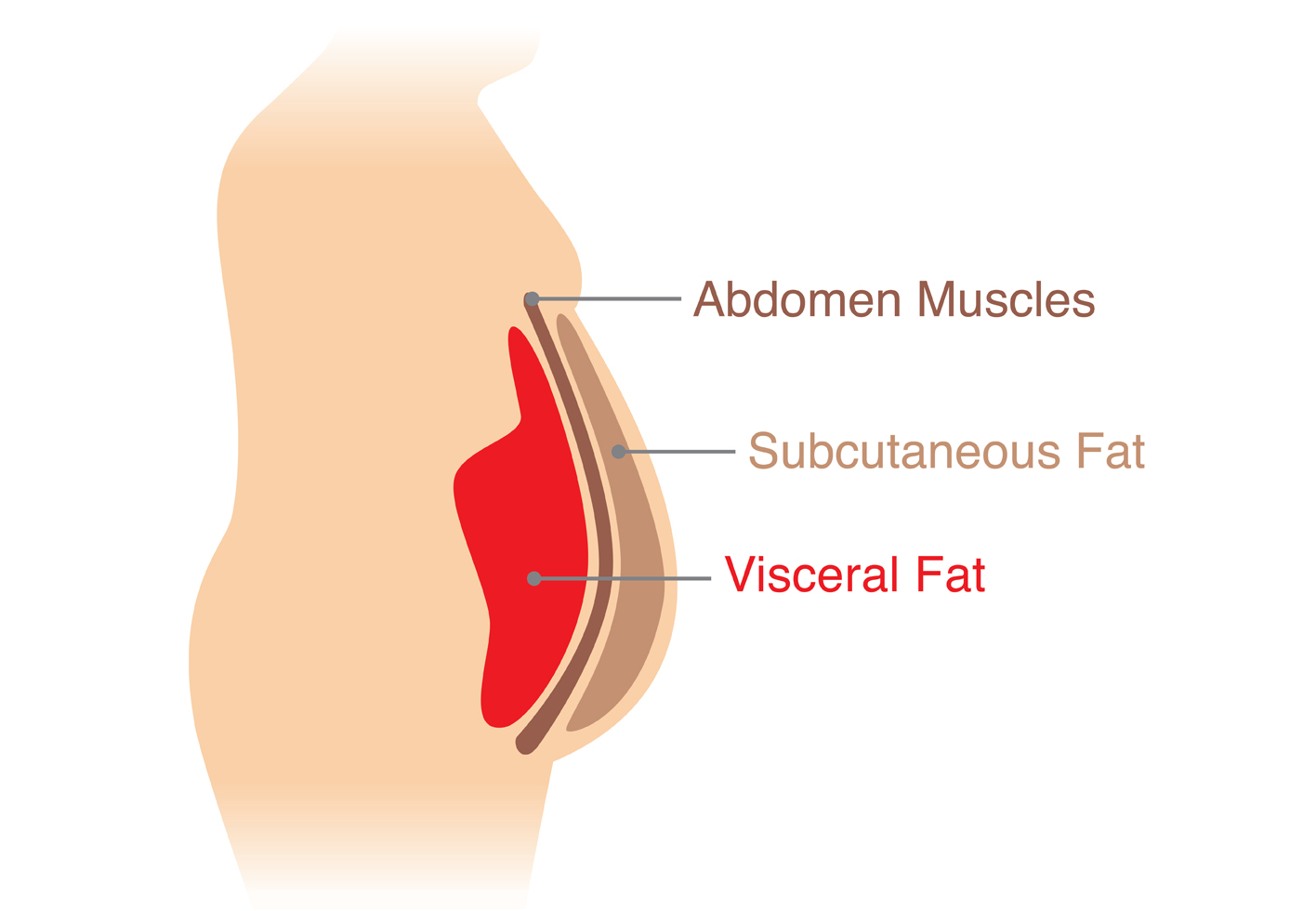What Is Visceral Fat and How to Reduce It

Visceral fat, or active fat, sits inside your abdominal cavity and wraps around nearby organs like the liver, stomach and intestines. Visceral fat is also metabolized by the liver. Once it’s turned into cholesterol and circulated in the blood, it can get stuck inside the arteries.
This type of fat is dangerous because it can also lead to inflammation, which damages the arteries and negatively affects how our bodies break down sugars and fats. Visceral fat is called active fat because it actively increases your risk of serious health problems like cardiovascular disease, colorectal cancer, Alzheimer’s disease and type 2 diabetes. It’s also associated with breast cancer and the need for gallbladder surgery in women.
As people age, their proportion of fat to body weight tends to increase, and the extra pounds often settle around their midsection. However, visceral fat should not be confused with subcutaneous fat (the kind you can grasp with your hands). Visceral fat lies out of reach, deep within the abdominal cavity.
An easy way to determine if you’re at risk for health-related problems is to measure your waist. According to the Harvard T.H. Chan School of Public Health, women who have a waist size of 35 inches or higher have a higher risk of cardiovascular disease and other health problems related to visceral fat. Men have a heightened risk for health problems related to visceral fat when their waist measures 40 inches or higher. The only way to diagnose visceral fat is with a CT or MRI scan, but they can be time consuming and expensive. Healthcare providers will typically use predetermined guidelines to evaluate your visceral fay and the health risks it poses to your body.
How to reduce visceral body fat
The good news is visceral fat is highly receptive to diet, exercise and other healthy lifestyle changes. Here are ways you can lose weight and minimize your visceral fat:
- Engage in moderate exercise for at least 30 minutes every day. Try things like brisk walking, cycling, aerobic exercise and strength training.
- Eat a healthy diet of soluble fiber (e.g., flax seeds, avocados, legumes and avocados), lean protein, fruits and plenty of leafy green vegetables. It’s also important to limit sugars and avoid trans fats, which are commonly found in baked goods, microwave popcorn and fried foods.
- Stop smoking. New research has found that tobacco tends to push fat into central areas of the body, like the abdomen.
- Limit your intake of sugary drinks, as overconsumption can lead to excess weight, obesity and other health risks. Reach for water instead, and if you need a bit of flavor, try infusing your water with things like lemon, mint or cucumbers.
- Get plenty of rest (between 7-9 hours per night) to help lower your risk of visceral fat accumulation.
- Take steps to lower stress in your life. You can try things like meditating, journaling, socializing, laughing, deep breathing exercises, yoga. The stress hormone cortisol can increase the amount of visceral fat your body stores.
If you or a loved one is considering a weight loss procedure to help manage weight-related health conditions like type 2 diabetes, contact Dr. Wiljon Beltre at Beltre Bariatrics at 321-499-6505 to learn which procedure is right for you. We specialize in sleeve gastrectomy and gastric bypass procedures and offer long-term support after your initial weight loss surgery.

Are You a Candidate for Weight Loss Surgery?
Take our 60 second assessment and find out if you are a candidate for weight loss surgery


